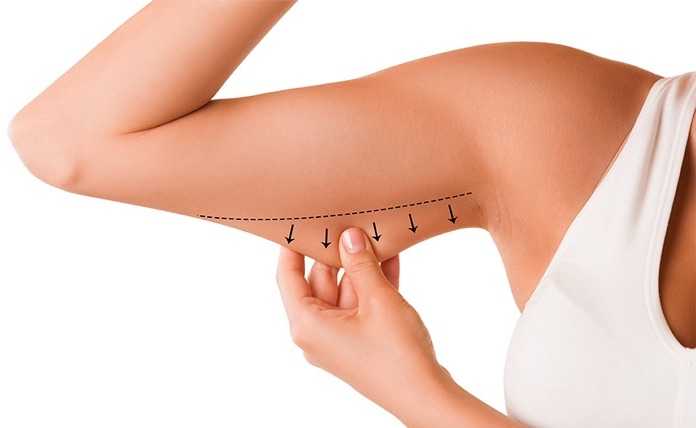My Emotional Transformation After Liposuction: Understanding the Journey
Key Takeaways
- Surgically, emotional changes after liposuction can be unpredictable.
- The psychological impact of liposuction requires special attention.
- Coping with emotions means understanding that change is a part of life. Connecting with friends, family, or support groups can provide additional support during difficult times.
- It’s important to pay attention to signs of depression, such as feelings of sadness that persist or a lack of desire to do things after surgery. It keeps your sanity intact while healing.
- If emotional challenges become overwhelming or persist, seek professional help from a therapist or counselor.
- Take charge of your emotions post-liposuction. Practice mindfulness, make healthy lifestyle choices, and communicate openly with one another so the transition is not as jarring.
You’ve been there, feeling a combination of frustration and relief. The body shape change can be thrilling, but doubts creep in.
Recognizing these feelings helps. Seeking support from friends or professionals can help you navigate through this emotional labyrinth.
Ignoring these emotions can lead to issues like depression. It’s knowing when to ask for help that’s key.
If sadness or anxiety on its own hangs around, a therapist could provide a lifeline.
You’re going to go through the rollercoaster of emotions, and that’s wonderful — if unfortunate.
Remember, it’s not just about physical change but emotional growth too.
What Are Emotional Changes?
Types of Emotional Responses
Emotional changes after liposuction feel like a roller-coaster ride. During this time, you’ll experience a storm of feelings and thoughts.
A lot of the time, people feel happy and relieved because they’re thrilled about their new appearance. It’s not so rare to also feel anxiety or fear.
You may think, “Wow, I finally did it!” and then stress about healing. You have those who are happy one minute and panicking the next; that can impact day-to-day living and self-image.
For instance, someone feels excited the first time they see the changes in the mirror. Later that day, they may get a little nervous about whether they made the right call.
These ups and downs are normal and part of the show.
Personal expectations come into play here as well. Someone who expects overnight perfection could feel disappointed, while someone with reasonable expectations may be calmer.
Factors Influencing Emotional Shifts
Let’s get into what creates these emotional waves.
Personality traits can also go a long way. Some folks are just naturally optimistic and bounce back quickly from emotional setbacks. Others ruminate over their worries for a longer period of time.
Social support systems are important as well. Having friends or family to talk to can ease emotional recovery, making the whole process less lonely.
Then there’s the history with body image.
For anyone who has battled negative feelings about their body for years, liposuction can provide enormous relief. That person might also be confronted with emotional barriers in the process.
It’s like peeling off the old layers of emotional body image.
Society’s beauty standards can also pressure how one feels post-surgery.
Learning to recognize these feelings is helpful because it’s the first step to managing them.
Studies say up to a third of patients can have some sort of depression after surgery.
A routine involving mindfulness, deep breathing, yoga, or tai chi can help here. These practices stabilize your emotions and turn your daily experiences to the positive.
Psychological Impact of Liposuction
Body Image and Self-Esteem
Liposuction can completely transform how we view ourselves. It’s not only about what we lose in fat; it’s what we gain emotionally.
People say they feel more confident and at ease in their skin after.
Imagine finally releasing that annoying worry about your shape.
This finding is supported by the Body Shape Questionnaire (BSQ). It indicates that people feel less self-conscious about their weight and shape after the procedure.
It’s a weight off your shoulders… both literally and emotionally!
When we feel good about our bodies, it spreads to other parts of life, too.
You feel empowered; we feel empowered!
It’s almost as if we’ve been given a free pass to be our true selves, without the weight of those old insecurities.
That newfound confidence can last for years, and it creates a huge difference in the way we approach life.
Expectations vs. Reality
Here’s the thing: it’s super important to keep expectations in check.
Liposuction works wonders, but it isn’t magic. Sometimes people expect a complete transformation and feel disappointed when reality falls short.
That’s why having a heart-to-heart with your surgeon is pure gold. They can set realistic expectations on what’s possible.
That chat helps you align your dreams with what can actually happen, mitigating the risk of getting bummed out.
It’s about recognizing that change is incremental and celebrating every small movement forward.
Anxiety and Stress Post-Surgery
Now, let’s talk about the nerves.
Surgery can be stressful, no doubt. Concern about recovery or the end result can set in.
Stress isn’t just in the mind; it can mess with healing, too. Anxiety-management techniques, such as deep-breathing skills, are your friends here.
Time taken to chill out keeps anxiety at bay and ensures better recovery.
It is also important to pay attention to how you’re feeling emotionally. When things feel overwhelming, reaching out can make all the difference.
Keep in mind that this journey is just as much about mental health as it is about physical change.
How to Cope with Emotions
1. Acknowledge Your Feelings
When it comes to emotions post-liposuction, it’s simply all about feeling those feelings.
It’s like putting on lights in a dark room; then you can see more clearly.
My suggestion is to write a journal. That simple act can allow you to see the activity in your mind.
It’s not uncommon to experience a wide range of emotions after surgery, from extreme happiness to uncertainty. That’s a good thing.
Allow every feeling without judging it. By letting yourself feel, you keep from bottling them up, which is far healthier for your emotions.
2. Practice Mindfulness Techniques
Mindfulness may be a fancy word, but it simply means being present.
Start with a few minutes a day. You can experiment with meditation or deep-breathing exercises. They’re like mini-vacations for your mind.
The more I practice, the more it calms me down when I feel anxious. Focusing on the now reduces worries about what comes next.
Whether it’s yoga or tai chi, these practices provide a balance that’s good for the mind and body.
3. Seek Support from Loved Ones
This is why getting a strong support system is gold.
Talk to family and friends about how you feel and keep those conversations alive. Regular check-ins can also go a really long way. The more you talk about your journey, the better people know what you’re doing. Plus, shared experiences can enrich those bonds.
Whatever you do, remember you’re not alone.
Your loved ones can provide comfort and perspective you can’t get anywhere else.
4. Engage in Positive Self-Talk
What you say to yourself matters.
Try affirmations to boost your confidence. Substitute negative thoughts for others that are more positive.
If you catch yourself saying, “I’m not healing fast enough,” change the narrative to, “I’m healing in my own time.
This little shift can have a huge impact on how you think. This type of self-talk can change how you perceive your recovery and your body image.
At least make a list of your best assets. Remind yourself of what you’re good at and why you’re amazing.
5. Join Support Groups
Support groups, whether local or online, can be a huge help. They provide a place where you can talk about your experience with someone who understands.
Joining discussions can even offer new ways to cope and a sense of belonging. It feels great to be a part of this community. They really know where you’re coming from and hold your hand through it all.

Recognizing Signs of Depression
Identifying Symptoms of Depression
It is common to feel a little off after a giant change like liposuction.
If you’re feeling really down for a while, know the signs.
Some things to look out for: feeling really tired all the time, getting annoyed easily, or just not caring about stuff you usually like.
It’s a little tricky because these can also be part of recovery. If it’s dragging on, say weeks or even months, it could be something more than normal healing.
I think it’s always a good idea to take a couple of moments to reflect on how you’re doing day to day.
You’ve stopped doing things you usually love. Perhaps your routine’s been thrown out the window.
It’s critical to observe these shifts. This will help you identify if it’s a passing fad. It could also signal something more serious, like clinical depression.
If things aren’t getting better or seem to be getting worse, reach out to a mental health professional. A phone call really can make all the difference!
Importance of Early Intervention
Catching these feelings early is a game-changer. When we nip things in the bud, we can work out solutions.
You may need to talk with someone who can support you. Join a support group or sign up for something like yoga or tai chi to help you find that balance. Getting in front of it can absolutely aid how you recover physically as well.
Mental health deserves as much attention as physical recovery.
Don’t dismiss the value of keeping track of your mental health!
The sooner you address any emotional issues, the smoother the entire healing process.
So does getting good sleep—shoot for 7 to 9 hours.
Don’t feel shy if you lean on friends, family, or even neighbors.
Simple things, such as asking for assistance or talking about your feelings, can work wonders.
When to Seek Professional Help
Consulting a Therapist
Alright, so you’re considering therapy. Yeah, that’s a really great move. It’s a gift of understanding — and healing — you give yourself.
Therapy can be very beneficial if you’re feeling a little funky after liposuction. Studies show that up to 30% of folks experience some sadness or depression post-surgery. Recognizing those feelings is important because that’s the first step to managing them.
Imagine you have a place where you can vent your feelings and not be judged. That’s what a therapist provides — a safe zone to vent all the confusion and worry. They help you find what works for you when dealing with these emotions.
Look, it’s not just any therapist we want. Seek out someone that knows their stuff about cosmetic surgery problems. They understand you, and they can give you sound advice.
Benefits of Counseling
Counseling isn’t just about talking; it’s about healing and growing. Think of it as a little bit of an emotional balance guide.
You may feel a rollercoaster of emotions after your surgery, and that’s normal. If these feelings persist and interfere with your everyday life, it’s time to do something about it.
Talking to a counselor makes such a difference! They help you build personal ways to cope and keep those emotions in check.
You know, the ongoing counseling is actually your secret weapon for emotional well-being. It’s like having a toolbox full of strategies for remaining stable and grounded.
If you’re wondering, “When should I start?” there’s no time like the present. Reaching out to professionals or even joining support groups can make a world of difference.
Remember, if you’re struggling to manage those feelings, seeking help is a strong and brave step.
Conclusion
I’ve discussed why liposuction can be an emotionally charged procedure. It’s perfectly normal to get a little shaky after such a big change. Knowing what to expect helps you find your balance.
The important thing is to recognize the feelings early, lean on someone, and get help if necessary. You’re not in this alone, and asking for support is perfectly fine. Just remember, with all your understanding of your emotions — it’s as important as the physical changes.
So, breathe, watch your own emotions, and call it if it gets too heavy. It’s about treating your mind as well as your body. So talk to a pro if you need it.
Stay tuned, stay learned, and stay strong. If you want to read more about how to maintain emotional health after surgery, consider the resources below. If you need a little support, be sure to ask for it.
Frequently Asked Questions
What are emotional changes after liposuction?
Emotional changes after liposuction can range from feeling more confident in your body to anxiety. It’s natural to have a combination of feelings. Understanding these changes helps manage expectations and enhances emotional well-being.
How does liposuction impact mental health?
Liposuction can increase confidence but could cause anxiety or depression if expectations aren’t met. Psychological impact and managing healthy emotions.
How can I cope with emotions after liposuction?
Some coping strategies include self-care, setting realistic expectations, and maintaining open communication with loved ones. Concentrating on these can smooth out emotional transitions and build a positive attitude.
What are signs of depression post-liposuction?
Signs include feeling sad all the time, losing interest in things you used to enjoy, sleeping too much or too little, or eating too much or not at all. Early recognition of these symptoms aids in pursuing timely intervention and support for better mental health.
When should I seek professional help?
If emotional distress lasts longer than a few weeks, seek help. A mental health professional can help you find balance and ensure a smoother recovery.





